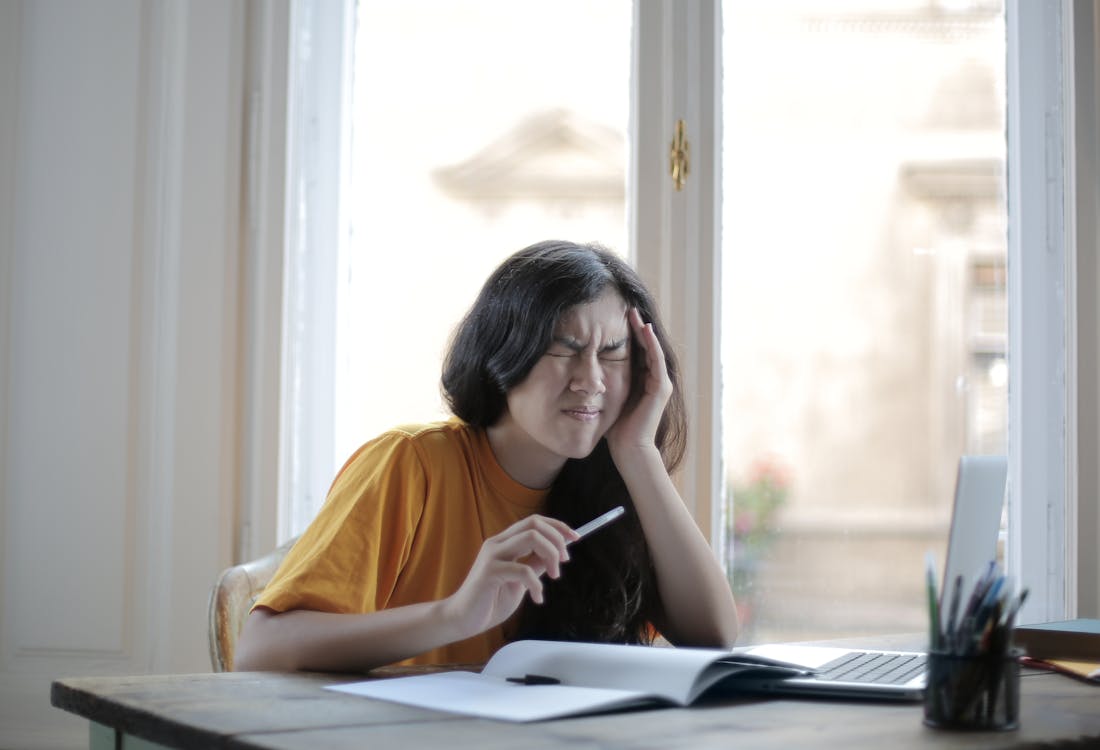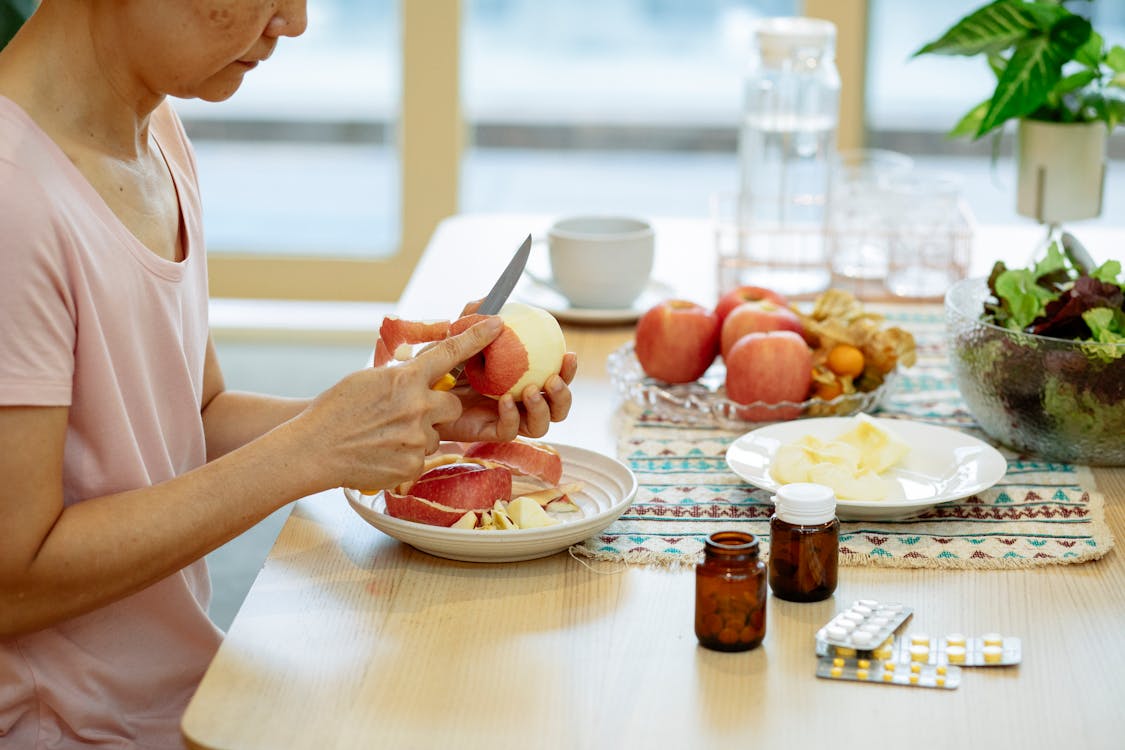Anyone who’s ever had a migraine knows that it’s not something you can “shake off” or “chew through.” The pain is often debilitating and sometimes even disabling. It’s difficult for migraine sufferers to work, go about their daily lives, or even get any sleep at night.

And for seniors, the situation can sometimes be even worse. Seniors have a higher risk of developing migraines. They’re more likely to experience other forms of chronic pain, like arthritis.
Besides, some medications used for migraine treatment can be dangerous for older adults. This includes drowsiness, dizziness, and confusion. So, they need other options for relief. Fortunately, you can do several things to help ease your migraines. Here are some preferable migraine home remedies for seniors.
Steer Clear of Foods that Induce Migraine
Our food plays a vital role in our overall health. It gives us energy and strength and keeps us healthy by preventing many diseases. However, some foods trigger migraine in people with a history of migraines.
Therefore, you must identify the foods causing your headaches and avoid them. According to experts, foods containing nitrates are among the most common migraine triggers. This includes processed meats like hot dogs, sausages, bacon, cured deli, and lunch meat.
Also, other foods can cause migraines in people with a history of chronic pain. These foods include aged cheeses, red wine, MSG, and foods containing tyramine.
Drink Some Coffee or Caffeinated Tea
Coffee can also help seniors with severe headaches. Experts have shown that caffeine reduces headaches in people suffering from chronic migraines. Caffeine is also a natural vasoconstrictor. It causes your blood vessels to narrow. This reduces pain by blocking pain receptors in your scalp and other regions.
Eat Regularly and Stay Well Hydrated
Yes, we mentioned some foods you shouldn’t eat if you want to avoid migraines. But it doesn’t mean that you should skip all your meals. Eating regularly can help prevent headaches. This is because it can increase blood flow to the brain, especially during low blood sugar levels.
Drink plenty of water throughout the day as well. Drinking enough fluids is vital for proper hydration. It helps reduce inflammation in your body. Water also helps flush out toxins from your body. It keeps your blood pressure and heart rate at healthy levels. If you’re prone to migraines, try keeping a bottle of water nearby or drinking a glass of water with every meal.

Use Peppermint Oil
Peppermint oil is another natural remedy that can help reduce headaches. There are many ways to use peppermint oil, but inhaling it is one of the most effective methods. One study found that seniors should inhale peppermint oil at a 1% concentration. Those who did experience reduced pain and tension levels after 15 minutes.
You can apply peppermint oil to your temples, forehead, and neck. You can also place a drop of peppermint oil on a cotton ball. Then hold it in your hand until it’s warm and press it against your skin.
Incorporate Magnesium into Your Diet
Magnesium is among the essential nutrients for your body to function correctly. Magnesium is present in hundreds of processes. This includes proper nerve function and blood pressure regulation.
Experts also linked magnesium deficiency to migraines. So, you must get enough of this mineral in your diet. Seniors who experience migraines are also at an increased risk of magnesium deficiency. You should pay attention to your diet and also ensure you get enough magnesium is essential.
Excellent sources of magnesium include dark leafy greens like spinach. Almonds, cashews, whole grains, beans, potatoes, and bananas are also great.
Sleep in a Quiet, Dark, and Air-Conditioned Room
Light and noise can affect your sleep quality. It’s essential to keep a dark and quiet room when you go to bed, as it helps you fall asleep faster. If you are sleeping with someone else in the same room, they shouldn’t make noise. Also, switch off lights that could disrupt your sleep.
Additionally, consider investing in an air conditioner for the summer months. This is especially vital if you live in a sweltering climate or have trouble sleeping when it’s warm. Your bedroom temperature should be about 78 degrees Fahrenheit for optimum sleep.
Reduce Stress and Get Enough Sleep
We should sleep for about eight hours each night. If you don’t get enough sleep, it can cause stress, making it harder to fall asleep at night.
This is especially true for seniors who have severe bouts of migraines. To reduce your stress, try to get enough sleep each night. If you have trouble sleeping, exercise in the morning, or take a warm shower before bedtime. You can also practice mindfulness exercises to help calm your mind and body.

Perform Yoga and Physical Exercise
Speaking of mindfulness exercises, these two activities can reduce migraines. Yoga is excellent because it helps you relax and improves your flexibility. It also boosts your energy levels. Another aspect of yoga is meditation. Meditation is a great way to calm your mind and body. It can also help reduce stress and anxiety, common triggers for migraines.
If you don’t fancy yoga or meditation, consider doing some senior-friendly physical exercises. Some examples include swimming, walking, and dancing. You can even play a sport like a game of tennis or golf.
Listen to Relaxation Music
As a senior, you probably know that you need to get plenty of rest and sleep. However, falling asleep at night is challenging when you have a migraine. A great way to help yourself relax is by listening to relaxation music. Many people find that relaxation music helps them feel calmer before bedtime. This allows them to fall asleep faster and stay asleep longer.
Conclusion
The above preferable migraine home remedies for seniors can help eliminate migraine headaches. These home remedies are simple and easy to apply. So, you won’t have to spend much time or money on treatments that don’t work. Plus, they have no side effects!





